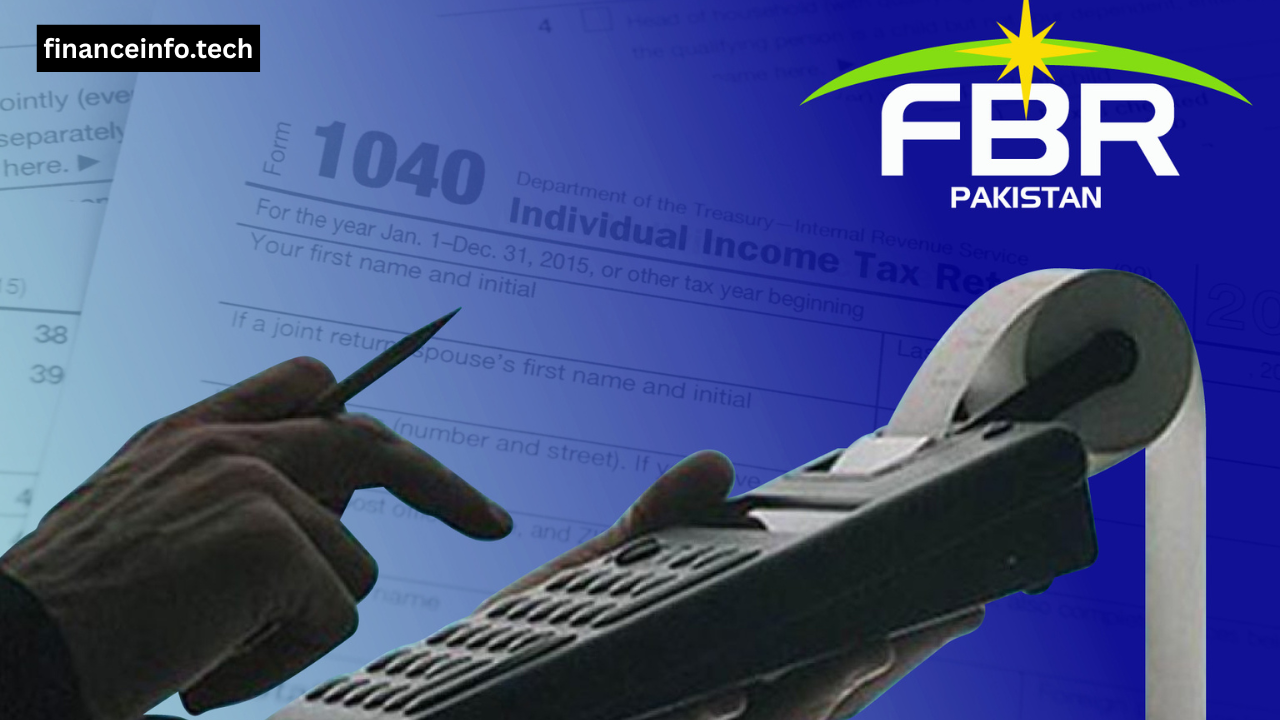Table of Contents
Introduction
Its time of launching is vital. Pakistan is still facing huge tax gaps due to tax evasion, and ineffective enforcement mechanisms. This blog is covered by financetech.com Through physical inspection of business activities and comparing their records to actual performance and actual performance, the FBR will hold companies accountable and ensure that they make accurate tax payments to the exchequer of the nation.The Federal Board of Revenue (FBR) in Pakistan is a key player in Pakistan’s economic structure by making sure that taxes are collected as well as promoting compliance and reducing tax fraud. One of the most significant recently announced initiatives has been the launching of field audits targeting different industries in the country. This move is a step toward greater accountability and transparency within Pakistan’s tax system.

Through conducting inspections on the ground and reviewing financial records and cross-checking information and records, the FBR is aiming to find out if there are any irregularities and to bring income that is not reported to the net of tax. This will not only improve the collection of revenue, but also encourages fairness by preventing tax evasion, and a level tax burden for taxpayers who are compliant.Industries across different sectors — such as manufacturing services, retail and import-export are being scrutinized to make sure they comply with tax laws. These audits are expected to increase compliance by voluntary means, since businesses are becoming more aware of the possibilities of rigorous audits.
What Is an FBR Field Audit?
The objective is to discover gaps between the figures reported in relation to actual performance. This method of hands-on is important in areas that have cash transactions as well as not documented sales are typical. Any mismatches can result in penalties, back taxes, or even legal proceedings. Field audits are an essential tool for enforcement to ensure that companies comply with all tax obligations.
The principal goal of an audit in the field is to verify you are reporting their income, expenses, and tax obligations in compliance to Pakistan’s tax laws. It can help identify any irregularities, income that is not reported or indicators of tax fraud. Field audits may take place on a regular basis, based on risk or initiated by warning signs in a person’s profile or in the industry. In the main the sense that the FBR Field audit serves as an essential tool to enforce tax compliance, enhancing the collection of revenue, and enhancing public trust in the efficiency and fairness of Pakistan’s tax system. The FBR is continuing its initiatives to improve and overhaul tax administration.
Why Is This Audit Initiative Important?
The field audit program of the FBR is designed to combat this issue by focusing on sectors that are most susceptible to leakage of tax. These industries often operate in a non-formal manner or are difficult to control because of their size and their complexity. Through the assignment of specific auditors to industries with specific expertise, FBR hopes to bridge gaps in the information available and to uncover tax avoidance that routine audits may miss.
This method is tailored to improve the accuracy of audits as auditors are able to examine operations using an understanding of specific industry standards and procedures. This is a step towards smarter and more efficient tax administration.

Key Industries Under Audit
After the evaluation on site is completed after which the audit team will prepare a thorough compliance report. The report identifies inconsistencies and serves as the basis for further actions that could include the imposition of financial penalties, the freezing of bank accounts, and even criminal charges in the case of willful avoidance. The Federal Board of Revenue (FBR) has identified a number of important industries that require field audits due to their importance in the economy and risk of tax avoidance. These industries are closely monitored to ensure correct tax compliance as well as to expand your tax base.
- Manufacturing Industry It includes the sugar, cement, textiles fertilizer, as well as steel industries. These industries are large-scale and are susceptible to underreporting sales and production.
- Retail as well as Wholesale Trade In addition to massive transactions that are cash-based, retail businesses typically operate in an informal market. Retailers, franchises wholesale distributors and franchises are being reviewed to ensure that they are registered for tax purposes and invoicing.
- The Import and Export Companies They are audited to check the authenticity of customs declarations, the value of products, and consistency between the import and export data and tax returns.
- Real Estate and Construction Because of historically inadequate documentation and invoicing property developers, builders as well as real estate brokers are investigated for income that is not declared.
- service Industry This covers the telecom, advertising healthcare, digital services and education, in which tax compliance with respect to service is often ignored.
- Hotel and Tourism – Hotels as well as restaurants and travel agencies are subject to audit for the proper documentation and tax payments.
Early Enforcement Actions
These instances indicate a significant shift in FBR’s policy-making from collecting taxes passively to active investigation-based enforcement. This field audit program is a key element of this change, with the goal to stop tax evasion in the future and to recover the revenue lost. One of the initial steps was to issue audit notices to businesses in the key industries of manufacturing retail, manufacturing, and real estate. The notices required taxpayers to submit detailed financial records as well as explanations of the mismatch between the declared income and the actual business activities. In some instances, FBR teams conducted surprise visits to offices by securing undeclared documents and examining sales data and comparing it to tax returns.
Penalties were handed out to businesses who were found to be in violation of reporting income or failing to keep adequate documentation. Certain businesses were also referred in the event of legal proceedings which could include criminal prosecution for tax violations.In addition, FBR has leveraged third-party data, including utility bills, bank transactions as well as import/export records to spot irregularities and ensure the law. The early enforcement actions indicate the shift towards more stringent surveillance and accountability.

FAQS:
1. What are the sectors that are being audited?
FBR is currently auditing 42 industries that include automobiles, textiles sugar, banking, cement steel, real estate pharmaceuticals, insurance, petroleum and telecommuting.
2. What is the reason FBR start this drive?
To cut down on tax evasion, boost the national income, and ensure compliance in high-risk industries.
3. Who is responsible for audits?
Auditors from 102 with expertise specific to the sector who are employed through HR companies who conduct these audits.
4. What can a business do if they are selected to be audited?
Fully cooperate, organize your documents and look into employing a tax professional to help.
5. What happens if discrepancies are discovered?
In the event of a serious incident business may be subject to penalties or tax recovery notices or even legal actions.
Conclusion
The FBR’s nationwide field audit campaign represents a significant step towards strengthening the Pakistani tax enforcement infrastructure. In focusing on areas with historically low compliance and tax compliance issues, the FBR is taking a risky decision to recoup billions of lost revenue and establish the long-term discipline of tax practices.
Leave a Reply